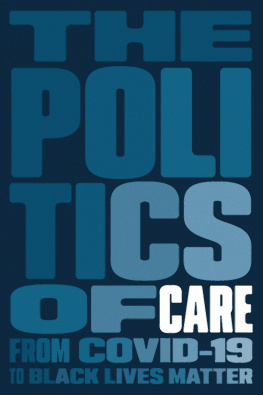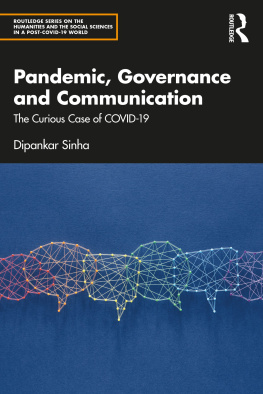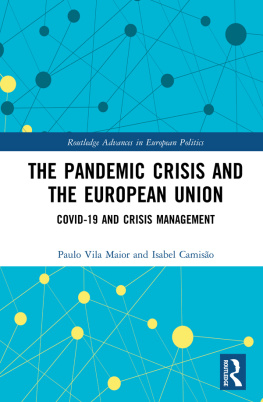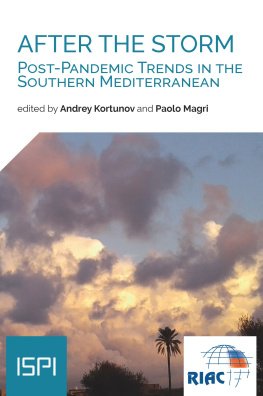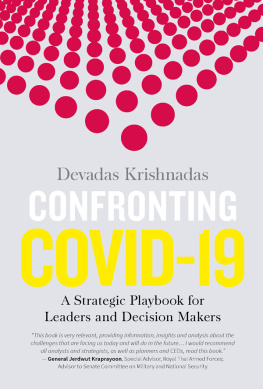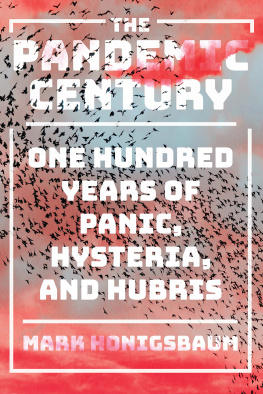Table of Contents
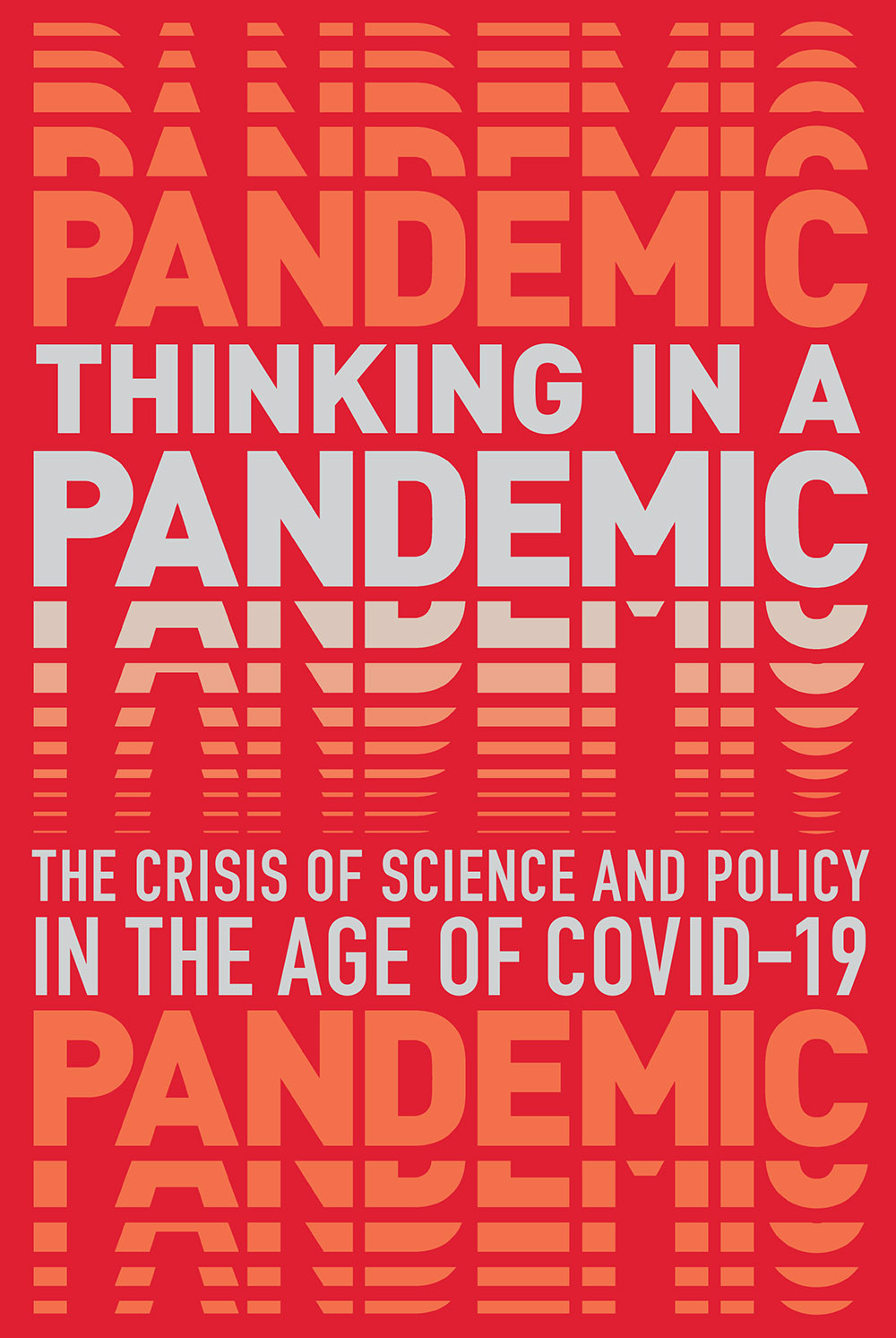
THINKING
IN A
PANDEMIC
THINKING
IN A
PANDEMIC
a copublication of
BOSTON REVIEW & VERSO BOOKS
made possible by a generous grant from
THE WILLIAM AND FLORA HEWLETT FOUNDATION
Editors-in-Chief Deborah Chasman & Joshua Cohen
Managing Editor and Arts Editor Adam McGee
Senior Editor Matt Lord
Engagement Editor Rosie Gillies
Manuscript and Production Editor Hannah Liberman
Contributing Editors Junot Daz, Adom Getachew, Walter Johnson,
Amy Kapczynski, Robin D.G. Kelley, Lenore Palladino
Contributing Arts Editor Ed Pavli
Editorial Assistants Meghana Mysore & Katya Schwenk
Marketing and Development Manager Dan Manchon
Special Projects Manager Mara Clara Cobo Ordez
Finance Manager Anthony DeMusis III
Copublisher Verso Books
Printer Sheridan PA
Board of Advisors Derek Schrier (chairman), Archon Fung, Deborah
Fung, Alexandra Robert Gordon, Richard M. Locke, Jeff Mayersohn,
Jennifer Moses, Scott Nielsen, Robert Pollin, Rob Reich, Hiram
Samel, Kim Malone Scott
Interior Graphic Design Zak Jensen & Alex Camlin
Cover Design Alex Camlin
To become a member, visit
bostonreview.net/membership/
For questions about donations and major gifts,
contact Dan Manchon, dan@bostonreview.net
For questions about memberships, call 877-406-2443
or email Customer_Service@bostonreview.info.
Boston Review
PO Box 390568
Cambridge, MA 02139-0568
Verso
UK : 6 Meard Street, London W1F 0EG
US : 20 Jay Street, Suite 1010, Brooklyn, NY 11201
versobooks.com
Verso is the imprint of New Left Books
ISSN : 0734-2306
ISBN -13: 978-1-83976-312-0
ISBN -13: 978-1-83976-314-4 ( US EBK )
ISBN -13: 978-1-83976-313-7 ( UK EBK )
Authors retain copyright of their own work.
2020, Boston Critic, Inc.
CONTENTS
November 2, 2020
Nearly a year after the first COVID-19 cases were detected in late 2019, the toll of the coronavirus pandemic is grim. Globally, the disease has directly claimed over a million livesmore than 225,000 in the United States alone. Billions of others have been thrown into deep distress, both by the virus itself and by efforts to contain it.
In many places, the numbers are only getting worse. As I write, the number of new cases has set a daily record in the United States, the daily number of hospitalizations is on its third upswing since April, and several European countries have imposed some form of a second national lockdown. Meanwhile, following successful campaigns at containmentsome deeply controversiallife in many Asian countries has more or less returned to normal.
But numbers do not tell the whole story. As months of protests and polarization over pandemic response have made clear, COVID-19 is not just a public health crisis: it is also a crisis of public reason. In a political climate already plagued by misinformation and historically low levels of trust in government, controversy has erupted over every facet of coronavirus research, from masks and mathematical models to data and drugs. The World Health Organization speaks of fighting not just the epidemic but an infodemic alongside it.
We should not mistake public controversy for expert disagreement, of course. Epidemiological consensus has converged on the importance of masks, contact tracing, mass testing, and social distancingall key elements of responses in Asia. But the injunction to follow the science misrepresents the full complexity of scientific practice, especially where it intersects with political power and while it is being reshaped by the exigencies of COVID-19 .
Science is more than settled theories and static facts: it is a dynamic institution. It is also not singular but pluralmore than one field, more than one voice, more than one resultand its claims must be carefully reviewed, balanced, and communicated. Early inconsistencies in messaging about masks on the part of public health authoritiesand the change of course prompted by democratic scrutiny of their argumentsreveal just how much public reasoning matters. In a functioning democracy, Sheila Jasanoff writes in her 2012 book Science and Public Reason , there has to be a correspondence between what officials offer in the way of public justification and what is heard and respected by the citizens.
In short, there is no royal road from expertise to action. What do we know, and how should we act? We cannot answer without public reasoning about which evidence counts, which arguments are valid, and which interventions are justified. Highly sensitive to the actions of powerful experts and ordinary citizens alike, this elaborate exercise in knowledge production, public policy, and democratic deliberation shapes the lives of billions.
The essays in this volumefrom epidemiologists and physicians, philosophers and historians, anthropologists and social scientistswere written on the front lines of these debates. Drawn from Boston Review s ongoing series Thinking in a Pandemic, they show the public conversation about science and policy unfolding in real time. The essays are organized in three sections. The first, Pandemic History, sets the stage for COVID-19 by viewing pandemic science and pandemic politics in historical perspective. The second, Pandemic Philosophy, features an exchange with two prominent epidemiologists on the nature of evidence and the logic of intervention. And the third, Pandemic Policy, examines five case studies at the interface of science and society, from the health effects of the economic downturn to the implications of racial discrepancies in the workings of pulse oximeters.
The result is an essential record of public thinking about the pandemic. Together the contributors make clear that the challenge of COVID-19 has always been both scientific and social. Only by reasoning collectively about all its facets will we be able to meet it.
PANDEMIC
HISTORY
Science,
Politics,
Society
April 3, 2020
There is a saying among epidemiologists: If youve seen one pandemic, youve seen one pandemic. Echoing this trade wisdom in an interview two weeks ago, Bruce Aylward, the assistant director of the World Health Organization ( WHO ), pointed out that each new pandemic follows its own logic, and those who rely on past experiences to draw conclusions for public health will make mistakes. With each new pandemic, it is tempting to scour history books for parallels and lessons learned. But as many have stressed, the wisdom to be gained is often greatly exaggerated.
Still, it is possible to steer a course between the Scylla of historical blindness and the Charybdis of hasty generalization. In her book about the Black Death of 1348, A Distant Mirror (1978), historian Barbara Tuchman confines her remarks on the present to a few oblique lines in the preface. If one insists upon a lesson from history, she writes, it is, as the French medievalist Edouard Perroy contended, that certain ways of behavior, certain reactions against fate, throw mutual light upon each other. My working premise is that although the pathogen may be new, the logic of social response is not, and it is here that we can see historical continuities. An especially telling case studystill an object of fascination and controversy among historians of health and diseaseis the devastating outbreak of cholera in Hamburg at the end of the nineteenth century, the subject of Richard Evanss superbly researched Death in Hamburg


